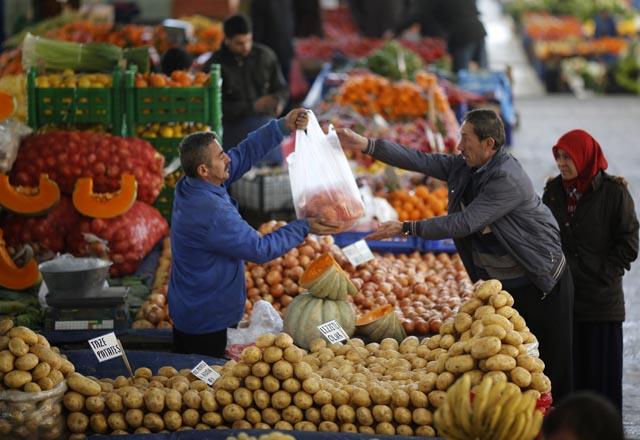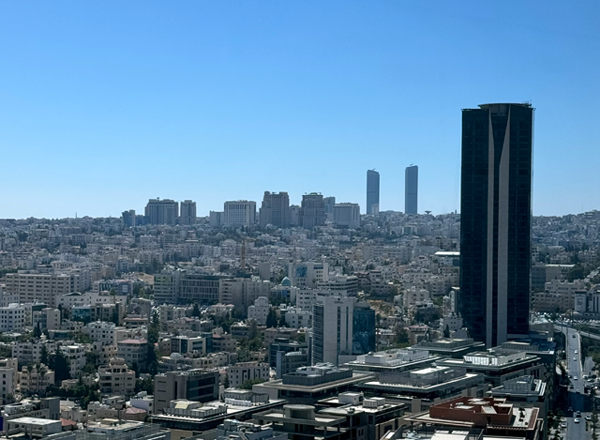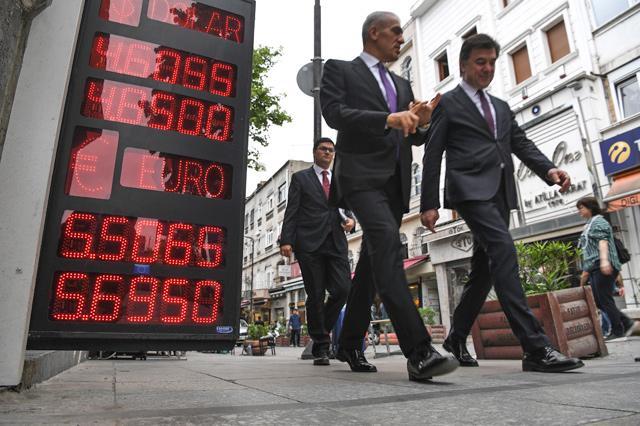ISTANBUL — Standard & Poor’s (S&P) cut its outlook on Turkey’s ratings to negative from stable on Friday, saying that it saw risks of a hard economic landing and that the country’s policy environment was becoming less predictable.
A corruption investigation shaking Prime Minister Recep Tayyip Erdogan’s government along with sharp falls in the lira currency and rising inflation have raised concerns about political and economic stability in the run-up to elections this year.
“Turkey appears to have suffered an unanticipated erosion of institutional checks and balances and governance standards,” S &P said in a statement, citing in particular concerns about the independence of the central bank.
The credit ratings agency cut its outlook to negative on its unsolicited “BB+” long-term foreign currency and “BBB” long-term local currency ratings.
Nevertheless, it said Turkey’s low and largely lira-denominated debt provided it with significant buffers against economic turbulence.
The central bank ramped up interest rates last month to halt a slide in the lira despite opposition from Erdogan, a vocal opponent of higher borrowing costs who has railed against what he terms an “interest rate lobby” of speculators seeking to stifle growth and undermine the economy.
“We believe that any constraints on the independence and transparency of the central bank pose a risk to an economy that has traditionally relied on significant external financing needs,” S&P said.
Turkey is dependent on foreign capital flows to finance its gaping current account deficit, running at around 7 per cent of national output.
S&P lowered its projection for Turkish gross domestic product growth this year and next to 2.2 per cent from 3.4 per cent. It said the increasingly uncertain policy environment could weigh on the country’s economic resilience and long-term growth potential.
The lira was trading at 2.2170 against the dollar by 1844 GMT, weakening from 2.206 late on Thursday, but still some way off its record low of 2.39 hit on January 27.
“Based on the fundamental story that has played out over the past few weeks, the cut is justified. But I can’t help thinking that this is a backward-looking move,” said Benoit Anne, emerging market strategist at Societe Generale.
“The central bank has been sending the right signal to the market that it takes financial stability risks quite seriously. Now we still need to get some kind of solution on the political front, but that is going to take a lot of time,” he added.
S&P’s fellow ratings agencies Fitch and Moody’s have BBB- and Baa3 ratings on Turkey, respectively, both with stable outlooks.
Reputation at risk
Erdogan has overseen strong economic growth since coming to power in 2002, transforming Turkey’s reputation after a series of unstable coalition governments in the 1990s ran into repeated balance of payments problems and economic crises.
But his increasingly authoritarian style, from a heavy-handed police crackdown on street protests last summer to his reaction to the corruption investigation in recent weeks — purging the police and judiciary — has unnerved investors.
Erdogan is committed to maintaining growth as Turks prepare to vote in local elections in March and a presidential race in August, and has said his economic team is working on “a Plan B or a Plan C” for the economy.
But he has given no details, leaving investors guessing as to what might be in the pipeline. His ministers have ruled out capital controls to defend the lira.
Fitch and Moody’s have both said that last month’s huge interest rate hike of around 500 basis points could dampen economic growth but left their ratings and outlooks unchanged.
The central bank said it had tried to “front-load” its monetary tightening with the hike but said it may tighten liquidity further if needed.
Turks appear to be betting against it.
Foreign portfolio outflows have remained relatively steady in recent weeks, suggesting much of the strong dollar demand is coming from Turkish firms and households, stocking up on hard currency as a potentially turbulent election period approaches.
Separately, Turkish households and firms are hoarding dollars, suggesting they have little faith the lira will be spared a further emerging markets sell-off despite a massive rate hike.
Locals’ foreign exchange holdings rose 2 per cent to $122 billion in the week to January 24, jumping 13 per cent year-on-year, according to data from the central bank, suggesting they are not selling dollars as they did in the past in currency crises to benefit from a cheaper lira.
“Corporates have started buying foreign exchange for hedging purposes as they think the lira will not appreciate,” said a senior foreign exchange manager at an Istanbul bank.
“Moreover, individual investors and households — who used to sell as much as $10-15 billion whenever the lira depreciated — are hoarding dollars and even increasing their holdings, piling extra pressure on the lira,” he added.
Ratings agency Moody’s said the pressure on the currency was likely to persist despite the central bank’s actions, which it said had also significantly weakened Turkey’s growth prospects.
“Locals continue to accumulate foreign exchnage,” indicated Istanbul-based TEB-BNP Paribas strategist Erkin Isik, estimating Turks’ total foreign exchange holdings had risen some $5 billion in the past three weeks.
“It will be more difficult for the central bank to reverse this mood of local investors, if global risk sentiment remains weak,” he said.
Race against time
The currency slump means Turks now need more than twice as many lira to buy dollars as they did at the currency’s peak six years ago.
The lira’s slide has also left Turkish firms with foreign debts badly exposed, forcing them to scrap some investments at a critical time.
Turkey’s leading business group TUSIAD estimates that within just one month Turkish firms’ foreign debt has risen 25-30 per cent due to the currency weakness and higher risk premiums which push up borrowing costs.
The higher borrowing costs have also raised concerns about banking sector profits.


















